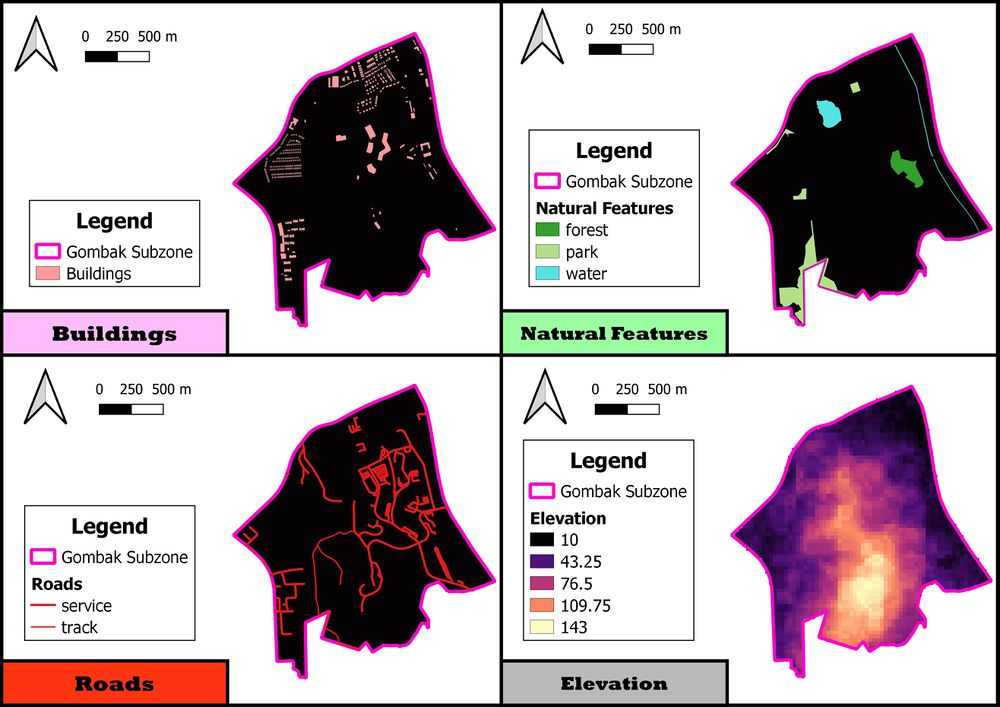SMT201 AY2019-20G2 EX2 Ho Jing Yi
|
OBJECTIVE |
PROXIMITY | LAND SUITABILITY |
The objective of this analysis is to identify a suitable location for building a National Communicable Quarantine Centre in Gombak planning subzone. This location need to have a contiguous area of at least 10,000m2 and its analyzed based on the following factors:
Economic factor
Accessibility factor
Health risk factor
Natural conservation factor
The building footprint is used to assess the health risk factor. The selected site should not be near populated area in order to prevent the spread of diseases when the quarantine centre is eventually built. The buildings is not categorized in the map as the buildings was not categorized well, with majority of the buildings labelled as "Unknown" in the data obtained from BBBike, and therefore, categorizing the buildings will not be useful in this case.
The natural features is used to assess the natural conservation factor. The selected site should be away from these natural features, particularly away from waterbody as the water can be contaminated easily.
The roads, specifically track(thinner line) and service(thicker line), is used to assess the accessibility factor. The selected site should be close to these roads so as to facilitate transportation of materials during the construction stage.
The digital elevation is used to assess the economic factor. The selected site should avoid steep slopes as building a quarantine on a steep slope will incur more construction cost.
